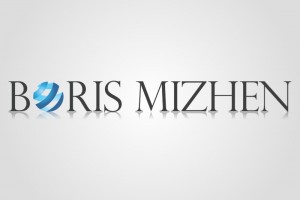Boris Mizhen Explains How Strong Understanding of Big Data Can Predict Election Results

Economist and New York Times blogger Nate Silver has gained fame for predicting both the 2008 and the 2012 Presidential elections with remarkable accuracy. In 2008, he correctly projected the presidential vote in 49 states before a single ballot was cast and in 2012 he placed the probability of Barack Obama being reelected at 90.9% – and correctly predicted the electoral results for all 50 states that year. His method of analyzing hundreds of polls and applying specific algorithms is just one of the most impressive uses of big data in the field of politics. Online marketer Boris Mizhen has recently launched his own big data application and has offered a few explanations and potential uses for the future of elections.
“We’ve seen how big data can accurately predict the outcome of elections, as well as sports results and other macro-scale events,” explains Boris Mizhen. “And while the prediction of results is one exciting and highly visible application, the influencing and targeting of voters is the other side of the equation – one that is even more vital to a candidate but probably invisible to the average citizen.”
According to Mizhen, in this day and age elections are won through narrow margins, by appealing to the swing voters – those individuals who are in the middle of the road. In order to accurately identify swing voters to convert, political parties need to build what statisticians call a “propensity model” – a data tool that helps understand what elements come to identify a person as a “swing” vote. Previously, parties have relied on rather inaccurate elements such as zip codes or age demographics to identify the likelihood of being a undecided. Now, through the use of big data, parties can utilize dozens of different data sets from across the Internet, including which online newspapers a voter reads, schools and education levels, and even political keywords found in Twitter and Facebook feeds.
Once the likely swing voters have been identified, the second use of big data by political parties is to find which voters will most likely align with their policies and build algorithms that isolate more accurately at which point a person is on the political spectrum and what means of communication might be the most effective, as well as how to place that message in a context most relevant and visible to the voter. “As this wealth of data is processed,” says Mizhen, “the patterns that emerge may be both enlightening and accurately predictable.”
Boris Mizhen’s network of companies specialize in the field of data collection, analysis and marketing applications. His solid track record of successes and innovative ideas have made him a well-known figure in the online world. He began his career in the real estate industry, with a focus on both residential and commercial properties and in particular with an attraction to neighborhood gentrification without losing the original character or displacing residents. Mizhen lives in New York City and has earned a reputation as a generous philanthropist, contributing considerable time and money to dozens of worthy causes.
Boris Mizhen — Explains Major Shift in Mobile Online Advertisement: http://finance.yahoo.com/news/boris-mizhen-explains-major-shift-041156922.html



Recent Comments